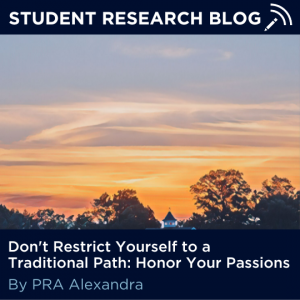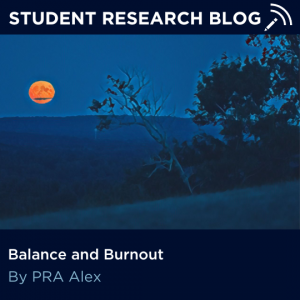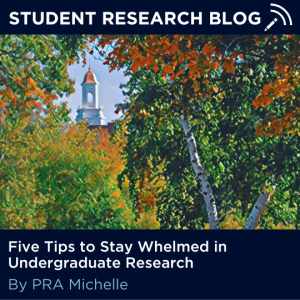Are you interested in participating in a formal off-campus summer research or internship program? Planning ahead is critical to submitting a competitive application. December is the time to gather together all the required elements of the applications, including faculty letters of recommendation. Check out the exciting programs below and consider if any would fit with your research goals and interests. These opportunities have application deadlines in December or January! Note: Most programs are planning for in-person activities in summer 2023, but be sure to check the individual program websites for updates.
DAAD RISE – Research Internships in Science and Engineering in Germany
Deadline: Applications are due by December 15, 2022; Letters of Reference are due by December 22, 2022; https://www.daad.de/rise/en/rise-germany/
DAAD RISE gives students in the fields of biology, chemistry, earth sciences, engineering, and physics the chance to spend a summer working on research projects with doctoral students at German universities and research institutions. Interested students must first register online before submitting application materials. Application materials must be submitted by December 15, 2022 (6pm EST), with letters of reference due December 22, (6pm EST).
ThinkSwiss Research Scholarships
Deadline: December 31, 2022; https://thinkswiss.org/
ThinkSwiss scholarships support highly motivated undergraduates who are interested in doing research at a public Swiss university or research institute. The scholarship is open to students in all fields. A monthly stipend of approximately $1,600 is provided for a period of 2-3 months ($5,400 maximum).
Science Undergraduate Laboratory Internships (SULI)
Deadline: January 10, 2023 (5:00pm EST); https://science.osti.gov/wdts/suli
The Science Undergraduate Laboratory Internship (SULI) program encourages undergraduate students to pursue science, technology, engineering, and mathematics (STEM) careers by providing research experiences at the Department of Energy (DOE) laboratories. Selected students participate as interns appointed at one of 17 participating DOE laboratories.
Cold Spring Harbor Laboratory – Undergraduate Research Program 2023
Deadline: January 15, 2023; https://www.cshl.edu/education/undergraduate-research-program
The URP program is designed to give 20 students an opportunity to conduct first-rate research under the supervision of senior laboratory staff in the areas of cancer biology, neuroscience, plant biology, cellular and molecular biology, genetics and bioinformatics, and genomics. Selected students receive room and board in addition to a $6,000 stipend.
SENS Research Foundation (SRF) Summer Scholars Program
Deadline: January 15, 2023 (12pm PST); http://www.sens.org/education/research-opportunities/srf-summer-scholars-program
This program offers undergraduate students the opportunity to conduct biomedical research under the guidance of a scientific mentor. Host labs will be announced shortly and will be available at the website link along with full descriptions of each research project. Stipend rates will be based upon levels used by government agencies, such as the NIH and NSF.
Mickey Leland Energy Fellowship Program (MLEF)
Deadline: January 23, 2023; http://orise.orau.gov/mlef/
The Mickey Leland Energy Fellowship (MLEF) is sponsored by the U.S. Department of Energy’s Office of Fossil Energy. This 10-week summer research fellowship provides opportunities to students who are pursuing degrees in STEM fields. The mission of MLEF is strengthen a diverse pipeline of future STEM professional by increasing opportunities for minority and female students. Interested students are encouraged to attend the final MLEF virtual information session (November 22 – info here) where program staff will review the application process, provide resume tips and share information on other DOE research programs.
Summer Internships in Science and Technology (SIST) – Fermi National Accelerator Laboratory (Fermilab)
Deadline: January 23, 2023; https://internships.fnal.gov/summer-internships-in-science-and-technology-sist/
Fermilab’s SIST program offers 12-week summer internships in science and technology. Internships available in physics, engineering (mechanical, electrical and computer), materials science, mathematics and computer science offer a chance for students to conduct research with Fermilab scientists and engineers. Hourly pay ranges from $15.84/hr-$25.00/hr depending on your year in school. Housing will be provided if the internship is held on site.
Summer Undergraduate Program in Engineering Research at Berkeley (SUPERB)
Deadline: January 29, 2023 (5:00pm, PST) https://eecs.berkeley.edu/resources/undergrads/research/superb
The SUPERB Computer and Information Science and Engineering program provides undergraduates with the opportunity to work on research projects focused on using Big Data. This challenging 9-week program is open to rising juniors or seniors who have completed some upper division course work in Electrical Engineering and Computer Sciences. Stipend of $5,000, housing, meals, and $800 travel allowance provided. Due to the Covid-19 pandemic, the campus policies will dictate whether the program is he in-person or remote.
Summer Research Experience Program in Cancer Science – Roswell Park Cancer Institute
Deadline: January 31, 2023; https://www.roswellpark.org/education/summer-programs/college-students
This 10-week summer research program is open to students who are college juniors or junior-equivalents (credit-wise) at the time of application and who are interested in pursuing an advanced degree towards a biomedical research career. Areas of research include, but are not limited to: cancer biophysics, tumor immunology, cancer genetics, molecular pharmacology. Selected students will be working in a Roswell Park department alongside professional researchers and graduate students. Students accepted into the NCI R25 funding source will receive a subsistence allowance of $6,000.
Summer Public Health Scholars Program (SPHSP) – Columbia University
Deadline: January 31, 2023; http://ps.columbia.edu/education/student-life/office-diversity/programs/college-and-post-baccalaureate-students/summer-publ
The Summer Public Health Scholars Program (SPHSP) is designed for undergraduate students who are interested in public health and biomedical science careers. Applicants must have completed at least two years of college (rising juniors and seniors). Students from underrepresented groups are encouraged to apply. Selected students will receive a stipend, housing, and round trip travel. The Summer Public Health Scholars Program is scheduled to take place in person in NYC for summer 2023. Scholars accepted in the program must be fully vaccinated to participate.
Maternal Child Health Careers/Research Initiatives for Student Enhancement – Undergraduate Program (MCHC/RISE-UP)
Deadline: January 31, 2023; https://www.kennedykrieger.org/training/programs/center-for-diversity-in-public-health-leadership-training/mchc-rise-up
MCHC/RISE-UP provides opportunities for enhanced public leadership in the area of maternal and child health. Three tracks are offered: clinical, research, and community engagement and advocacy. This program is open to juniors, seniors, and recent baccalaureate degree scholars interested in learning more about public health. A stipend ($3,000-$3,500) and housing are provided. Summer format is subject to change based on COVID-19 pandemic status.


